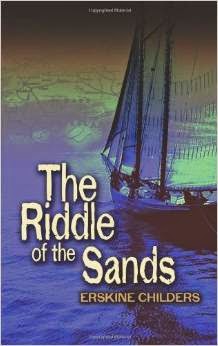Sargassum warnings
Seaweed, Sargassum, sargasso, Heterokontophyta... different names for the same thing - more than a nagging nuisance, a potentially serious health hazard. It has been clogging beaches in the Caribbean, causing distress to locals and loss of tourism. The boats in the Volvo Ocean Race struggled in the Sargasso Sea this year. VOR even compiled the best video footage of the sailors struggling to stay free of the weed.
The Sargasso Sea is a region of the North Atlantic Ocean bounded by four currents forming an ocean gyre. Unlike all other regions called seas, it has no land boundaries. It is distinguished from other parts of the Atlantic Ocean by its characteristic brown Sargassum seaweed and often calm blue water.
The sea is bounded on the west by the Gulf Stream, on the north by the North Atlantic Current, on the east by the Canary Current, and on the south by the North Atlantic Equatorial Current. It is approximately 1,100 km wide by 3,200 km long (700 by 2,000 miles) and lies between 70° and 40° W and 20° and 35° N. The clockwise-circulating system of ocean currents termed the North Atlantic Gyre deposits the marine inhabitants and refuse it carries into this sea, yet the ocean water in the Sargasso Sea is distinctive for its exceptional clarity, deep blue color and underwater visibility of up to 61 m (200 ft).
Now, as the VOR fleet crossed the Atlantic for the leg from Newport to Cardiff, they found themselves catching weed again, with divers having to go under mid-Atlantic to free their rudders of weed. Steering can be a real problem when clogged with weed. Certainly speed is affected in a race situation, especially one as closely contested as the VOR.
So what's causing this seaweed explosion and is it worse than before? Researchers have already observed changes in the surface waters of the Sargasso Sea, including increased temperature, changes in current patterns, and increased stratification of surface waters. At least one group is hoping to define the effect this is having on marine life. There is so little we know about the ocean. It's time to start learning now wile we still have a chance to mitigate our own effects.
So what's causing this seaweed explosion and is it worse than before? Researchers have already observed changes in the surface waters of the Sargasso Sea, including increased temperature, changes in current patterns, and increased stratification of surface waters. At least one group is hoping to define the effect this is having on marine life. There is so little we know about the ocean. It's time to start learning now wile we still have a chance to mitigate our own effects.





Comments
Post a Comment